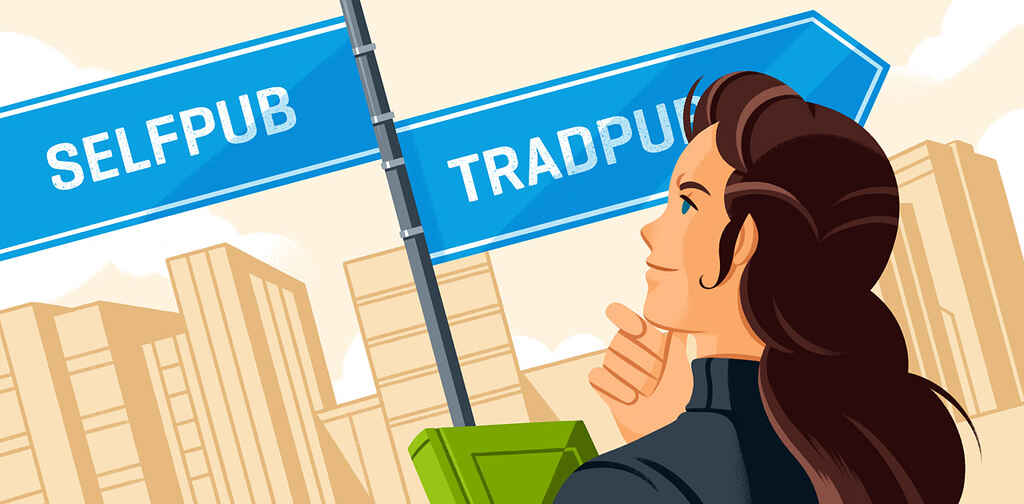In the ever-evolving landscape of the publishing industry, authors now face a crucial decision: Should they opt for self-publishing or stick with the traditional publishing route? This article delves deep into this dilemma, exploring the pros and cons of both options, enabling authors to make an informed choice for their literary endeavors.
Introduction
The world of publishing has witnessed a seismic shift in recent years, largely due to the rise of self-publishing platforms and digital technologies. Authors no longer find themselves bound by the traditional gatekeepers of the publishing world. This article aims to provide a comprehensive comparison of self-publishing and traditional publishing, shedding light on the key differences, advantages, and disadvantages of each.
The Freedom of Self-Publishing
1. Creative Control
One of the most enticing aspects of self-publishing is the unparalleled creative control it offers to authors. They have the final say in every aspect of their book, from cover design to formatting and content.
2. Speed to Market
Self-publishing allows authors to get their work into the hands of readers much faster than traditional publishing. There are no lengthy submission processes or waiting for acceptance letters.
3. Higher Royalties
Authors who self-publish can earn higher royalties on each book sold compared to their traditionally published counterparts. This can be a significant financial incentive.
The Support of Traditional Publishing
4. Professional Editing and Design
Traditional publishers provide professional editing, formatting, and cover design services, ensuring that the final product is of the highest quality.
5. Distribution Networks
Traditional publishers have established distribution networks, making it easier for books to reach physical and online bookstores worldwide.
6. Marketing and Promotion
Authors under traditional publishing contracts benefit from the publisher’s marketing and promotional efforts, increasing their book’s visibility.
The Challenges of Self-Publishing
7. Initial Investment
Authors who self-publish are responsible for covering all costs, from editing to cover design and marketing, which can be a significant financial burden.
8. Limited Resources
Self-published authors may struggle to compete with the marketing and distribution power of traditional publishers, leading to lower sales.
9. Quality Control
Without the oversight of a traditional publisher, self-published books may suffer from poor editing, design, and overall quality.
The Downsides of Traditional Publishing
10. Loss of Control
Authors relinquish creative control and decision-making power to the publisher, often resulting in compromises on the book’s content and design.
11. Lengthy Publishing Process
Traditional publishing can take years from submission to release, leaving authors waiting in anticipation.
12. Lower Royalties
Authors under traditional contracts typically receive lower royalty percentages per book sold.
Conclusion
The choice between self-publishing and traditional publishing ultimately boils down to an author’s goals, resources, and preferences. Self-publishing offers creative freedom and quicker release, while traditional publishing provides professional support and wider distribution. Authors should weigh these factors carefully to determine which path aligns best with their aspirations.
FAQs
- Is self-publishing suitable for new authors? Self-publishing can be a great option for new authors, as it allows them to enter the market quickly and gain experience. However, it also requires a lot of self-promotion and marketing effort.
- Do traditional publishers accept unsolicited manuscripts? Some traditional publishers do accept unsolicited manuscripts, but many prefer submissions through literary agents. It varies from publisher to publisher.
- Which option is more profitable, self-publishing, or traditional publishing? Profitability depends on various factors, including the book’s genre, marketing efforts, and author’s royalties. There’s no one-size-fits-all answer.
- Can authors switch between self-publishing and traditional publishing? Yes, authors can transition between the two paths if they choose. Many successful authors have experimented with both over their careers.
- What role does an author’s platform play in publishing choices? An author’s platform, including their social media presence and fan base, can influence the publishing path they choose. A strong platform can make self-publishing more viable.








